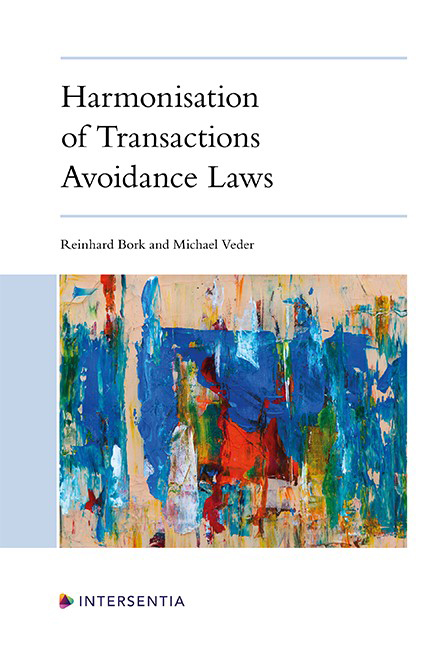Slovenia
Published online by Cambridge University Press: 26 May 2022
Summary
PART 1. DETAILS OF YOUR NATIONAL TRANSACTIONS AVOIDANCE LAW
I. SYSTEM
Question 1. Is your transactions avoidance law (for terminology cf. Introduction at C.) part of insolvency law or is it in parts or as a whole incorporated in other fields of law (e.g. general civil law, commercial law, company law)?
Part of insolvency law.
Question 2. Are the rules on transactions avoidance law in your jurisdiction the same for entrepreneurs/legal entities and consumers/natural persons? If not, please explain the differences and take it into account when completing this questionnaire.
It is different in cases of personal bankruptcy. There are additional challenging legal acts (i.e. transactions made in favour of closely connected parties) with a longer challengeability period (five years).
Question 3. Are the rules on transactions avoidance law in your jurisdiction the same for liquidation and restructuring proceedings (if any)? If not, please explain the differences and take it into account when completing this questionnaire.
They are different. No avoidance powers in restructuring proceedings, only limitation of the debtor’s operations (but the acts performed during the course of restructuring proceedings contrary to limitation are voidable in the case of subsequent bankruptcy proceedings).
Question 4. Are the rules on transactions avoidance law in your jurisdiction the same for debtor-in-possession proceedings (if any)? If not, please explain the differences and take it into account when completing this questionnaire
No debtor-in-possession proceedings.
Question 5. Does your transactions avoidance law distinguish various avoidance grounds (e.g. preferences, transactions at an undervalue, etc.) or is there only one general clause for all kinds of transactions?
There are various avoidance grounds.
Question 6. If the answer to Question 5 is “yes”: does your law contain special rules for the following kinds of transactions (for details, see below at Question 12 et seq.):
a) preferences?
Yes.
b) transactions at an undervalue?
Yes.
c) intentionally fraudulent transactions?
Yes.
d) shareholder loans?
No.
Question 7. Are there any other special kinds of transactions which are addressed in your transactions avoidance law and which you would like to mention here?
- Type
- Chapter
- Information
- Harmonisation of Transactions Avoidance Laws , pp. 1209 - 1230Publisher: IntersentiaPrint publication year: 2022

